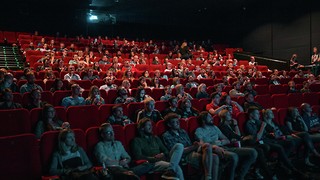Hygge hype: not just harmlessly homely?
Gabrielle McGuinness asks whether hygge is more political than we might think

Hygge (HUE-gah!) is the Danish term used to describe the enjoyment of the simple pleasures in life – think friends, family, and the warm, cozy glow of home. It is the latest foreign-concept-meets-lifestyle aesthetic that Britain has voraciously appropriated,steadily filling Pinterest boards and Instagram feeds.
As we pass our days horrified at Brexit, Trump, and the impending apocalypse in general, who knows which country’s cultural phenomenon we’ll steal next in search for some comfort?
Granted, hygge encompasses many of the best things in everyday life, from cuddles to tea, and from warm knitted jumpers to a glass of wine over a game of scrabble. Unless you are completely devoid of a soul, it’s hard to dispute that Denmark has something here that is positive – at least in theory – since it makes self-care a way of life. But my worry is that we’re spending all our time and money making our lives that bit homelier in pursuit of an ideal, when this, in fact, is shutting people off.
We all went to the pub for a glass of wine or snuggled under blankets on sofas watching Netflix long before we were told it was hygge
Take Christmas, a time filled with hygge in excess and a time that most of us are glad only lasts a few days – once you pass the age of five, it is customary to stop singing ‘oh I wish it could be Christmas everyday’ sincerely. The Christmas that many of us know takes things to extremes, coming with a hefty price tag and severe weight gain. If we practiced hygge on a daily basis, it would naturally become less indulgent than Christmas but at the same time it would grow even more impractical. Daily hygge is the reserve of the privileged. Only the lucky few can afford to work shorter days, pay for their central heating, and leave more time to spend with family or friends. Some have neither family nor friends to come home to, and others not even a home.
Yet here we are, sat in distress in front of our laptops, working out which knitted tea cosy on Etsy will bring us most joy. This is because we’ll latch onto anything that promises fulfillment. Hygge is more holistic in Denmark, but in Britain it is essentially a marketing ploy. Apparently we have grown bored of avocados, NutriBullets, feng shui, yoga, Buddha ornaments, and superfoods, so now we’re looking to Scandinavia for inner peace. We’re doing this because we’re told that according to the 2016 World Happiness Report, Denmark is the happiest country on earth.
Bookshop shelves have been filled with guides about how to go about living your life in a more Danish way. Tiger has become a mainstay of the British High Street and dreary spaces everywhere have been spruced up with fairy lights and scented candles. An actual Danish hygge expert, Meik Wiking, writes in The Little Book of Hygge that “after our basic needs are met, more money doesn’t lead to more happiness and, instead, Danes are good at focusing on what gives them a better quality of life.” The irony here being that you will have to fork out £7.99 to gain access to this wisdom.
Some may say that hygge is not about the stuff but how that stuff makes you feel. I agree to a marginal extent. My dreary Cambridge room would be deeply depressing without the pictures, posters, draped fabric, and homely touches that I cart back and forth between Cambridge and home every term. But I didn’t need to fetishise Danish culture to work this out. We all went to the pub for a glass of wine or snuggled under blankets on sofas watching Netflix long before we were told it was hygge, and knowing that it is called that isn’t suddenly going to help us discover the key to ultimate happiness.
But it is not our materialism that scares me most. Hygge is meant to be unpolitical, but in the UK its growth in popularity in 2016 directly correlates with the turmoil we have seen unravel throughout the year. The Britain I thought I knew was not one that would respond affably to hygge because it was not the sort of country that would willingly close its borders and turn inwards. But, as we are well aware, atavistic fears enacted legal change last year when we voted to leave the EU. A few days ago we saw Trump inaugurated as President. The conflict in Syria has now been going on since March 2011, and in almost six years we have done nowhere near as much as we ought to, especially where the migrant crisis is concerned. The gaps between different groups in society are steadily widening and instead of bridging them we are turning our backs on the world – for some, this is out of prejudiced fear and for others out of helplessness.
The hygge craze is cashing in on social upheaval. We now have an artisan mug filled with hot chocolate to sip on and a log-burning fire to admire while we shut off from the outside
 News / Tompkins Table 2025: Trinity widens gap on Christ’s19 August 2025
News / Tompkins Table 2025: Trinity widens gap on Christ’s19 August 2025 Interviews / Roger Mosey’s farewell to Cambridge21 August 2025
Interviews / Roger Mosey’s farewell to Cambridge21 August 2025 News / Delayed May Ball payments a ‘slap in the face’, say student workers21 August 2025
News / Delayed May Ball payments a ‘slap in the face’, say student workers21 August 2025 Comment / Time’s up for the Tompkins Table22 August 2025
Comment / Time’s up for the Tompkins Table22 August 2025 News / Council hits back at criticism of asylum seeker grant22 August 2025
News / Council hits back at criticism of asylum seeker grant22 August 2025









